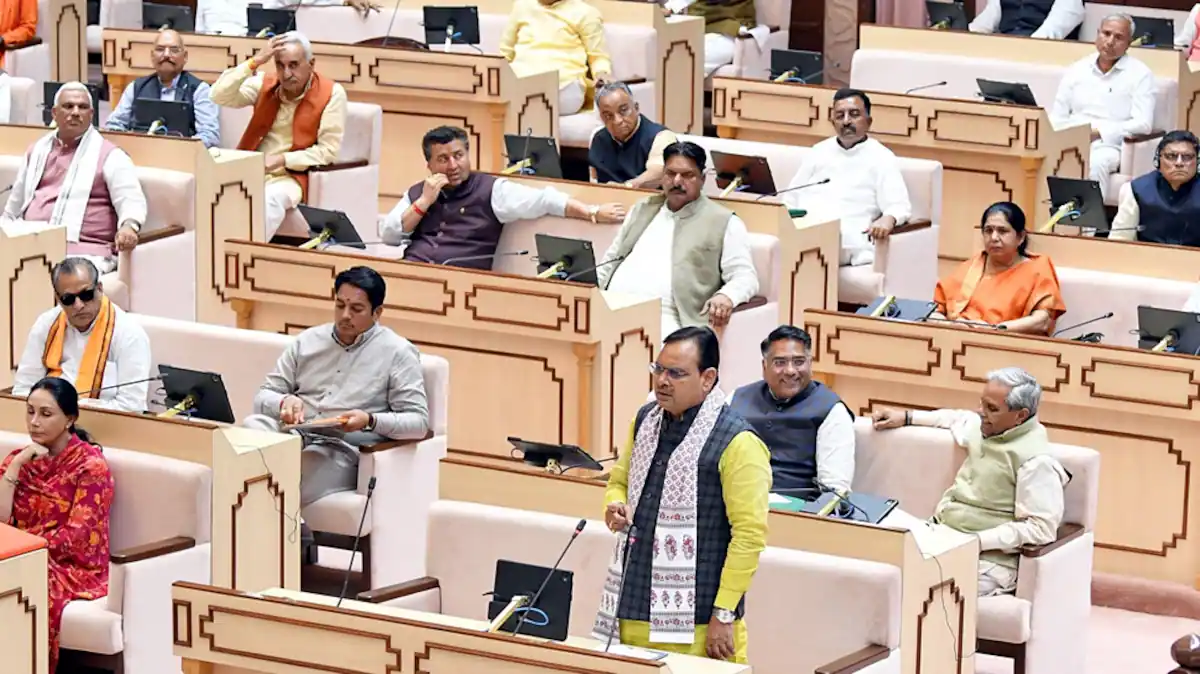Rajasthan Assembly Passes Stringent Anti-Conversion Bill: 90-Day Notice, Life Imprisonment To Fines – Explained
By Zee Media Bureau,Zee News
Copyright india

The Rajasthan Legislative Assembly recently passed the Rajasthan Prohibition of Unlawful Conversion of Religion Bill, 2025 by a voice vote, clearing the way for one of the strictest anti-conversion laws in the country. The Bill introduces sweeping measures to curb religious conversions carried out through force, fraud, inducement, or coercion, and prescribes punishments ranging from seven years’ rigorous imprisonment to life terms for repeat offenders.Introducing the Bill, Minister of State for Home Affairs Jawahar Singh Bedham said the legislation is vital to maintaining social harmony and safeguarding the state’s cultural fabric. “India’s eternal culture has always been a symbol of unity. Article 25 of the Constitution ensures religious freedom, but it does not support forced conversion through deception, inducement, fear, or fraud,” he told the House.Harsh Punishments for OffendersThe Bill lays out a graded system of punishments depending on the nature and circumstances of conversion. Fraudulent conversions are punishable with imprisonment for seven to 14 years and a minimum fine of Rs 5 lakh. If the victim is a minor, a woman, a member of the Scheduled Castes or Scheduled Tribes, or a person with disabilities, the penalty increases to 10 to 20 years’ imprisonment along with a fine of at least Rs 10 lakh, as per reports.Those found guilty of orchestrating mass conversions face the harshest penalties—20 years’ imprisonment to life and fines of no less than Rs 25 lakh. The legislation also targets financial networks behind conversions, stipulating 10 to 20 years’ imprisonment and a Rs 20 lakh fine for those who accept money from foreign or illegal organisations for conversion purposes.In cases where victims are threatened with loss of life or property, or deceived into marriage for the sake of conversion, offenders can face 20 years to life imprisonment and a fine of Rs 30 lakh. Repeat offenders will face life imprisonment and a fine of Rs 50 lakh.Property Confiscation and Marriage AnnulmentThe Bill allows for the confiscation of properties used for unlawful religious conversions. Family courts or other competent courts may annul marriages solemnised with the intent to force conversion under its provisions.Procedurally, anyone wishing to convert must give a 90-day prior notice to the District Magistrate or authorised officer, affirming that the decision is voluntary. Failure to do so will result in seven to 10 years in prison and a fine of at least Rs 3 lakh. Religious leaders facilitating conversions are also required to give two months’ prior notice; violations will attract 10 to 14 years’ imprisonment and a fine of Rs 5 lakh.Cultural and Judicial BackingCiting the views of B.R. Ambedkar, Jawahar Singh Bedham said the Bill ensures freedom of religion while preventing its misuse. He stressed that vulnerable groups such as Dalits, tribals, women, and economically weaker sections are most often targeted by systematic conversion campaigns.Bedham also highlighted that Indian courts have consistently held forced conversions illegal, with the Supreme Court affirming that Article 25 protects the right to propagate religion but not to coerce conversions. He said such practices are not only unconstitutional but also detrimental to India’s national identity and Sanatan culture.Part of a Wider TrendRajasthan now joins a list of states with anti-conversion laws, including Arunachal Pradesh (1978), Andhra Pradesh (2007), Uttarakhand (2018), Himachal Pradesh (2019), Uttar Pradesh (2021), Karnataka (2021), and Haryana (2022). Rajasthan had enacted a similar law in 2008, but the latest Bill is considered far more stringent, particularly with provisions for life imprisonment.Supporters of the legislation argue that it will act as a deterrent against predatory conversions and protect vulnerable communities. Critics, however, warn that the stringent clauses risk curtailing individual freedoms and may face judicial scrutiny in the days ahead.



